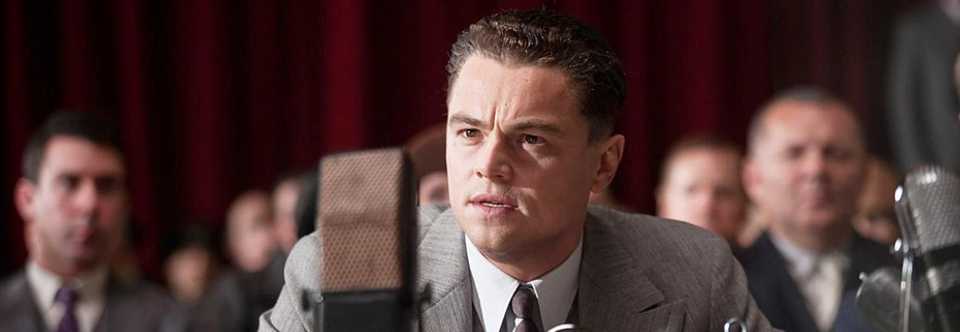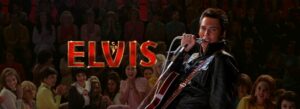
The latest screen masterpiece from Clint Eastwood is the life story of a figure called the second most powerful man in America. After all who could hold their position in charge of a nation’s law and order system for nearly 50 years serving the needs of America and keeping the favour of eight Presidents? J Edgar tells the story of John Edgar Hoover, the man who from a young age with a law degree in his back pocket took the helm of the Bureau of Investigation and turned it into the FBI in 1935. Under his watch methods of crime investigation grew in leaps and bounds through technology and innovation while the scrutiny of the public was managed and the favour of Congress and Presidents was controlled. It was said J. Edgar’s private files held America to ransom.
At first introduction I could be forgiven for thinking this was a Martin Scorsese production after all the starring role went to Leornardo DeCaprio. Picking up that Clint Eastwood directs this biopic and casting aside the Freudian slip the 137min movie walks us back and forth through the corridors of the FBI’s history as seen by J. Edgar. It highlights the character of different generations from 1919 through to 1972 and shows a changing nation with one constant, J. Edgar Hoover.
The constant flashback aspect can be a distraction from the timeline and one of the strengths of the movie actually makes it hard at first to see who’s who. This strength is the physical transformation of a real life 37 year-old Leornardo DeCaprio to play ages from 23 through to a highly make-up laden 70 year-old and it is impressive. In the first minutes of the film this leads to the challenge of connecting the dots however the onscreen physical presence and makeup both make a telling presentation and help confirm the legacy aspect of this man’s life.
Keep in mind that J. Edgar Hoover was involved in the Communist conspiracies of the 1919 era through to calling Robert Kennedy to inform him of JFK’s death and finished his time under Nixon. The controversy of his life didn’t just have a public face. The man who led a country into a Federal law and order system in the wake of the Lindenberg baby ‘Crime of the Century’ kidnapping never married and was domineered by his mother who he lived with till her death. A courtship in the movie is our introduction to Helen Gandy played by Naomi Watts. While love wasn’t in the air it was this flirtation that formed a career long professional engagement as his Personal Assistant keeping track as well as lock and key on his private files.
The trio of influence in J. Edgar’s life is complete once his mother played by Judi Dench and Naomi Watts are joined by Deputy FBI head Clyde Tolson. Armie Hammer from The Social Network fame steps in as the dapper law graduate from J Edgar’s own college. The two become inseparable as J. Edgar finds refuge in a solitary trustworthy male figure who later becomes Deputy head of the FBI. It’s from this relationship that writer Dustin Lance Black has drawn his key thread. The writer of other movies with an emphasis on gay history like Milk and Pedro tantalises this urban legend aspect of J. Edgar’s life just enough to ask the questions unanswered by closed doors. Controversy has always surrounded the history of a man who held America’s morals to ransom yet may have been involved in areas that at that time would be condemned by liberal and conservative thinkers alike. The issue of whether J. Edgar was homosexual are dealt with front and centre in the script and can’t be ignored from a man who spent much of his personal life at the side of Clyde Tolson to the extent they held hands in public, holidayed together and in the end his estate was bequested to Tolson on his death in 1972.
The history and life of J. Edgar are the tease to buy a ticket to this movie and Eastwood’s craft and DeCaprio’s acting brilliance are the reason’s to see it to the end. This for me is a turning point movie for DeCaprio. His ability to bring age and youth, conflict and condescension to the same character is extraordinary. The directing is superb although a little hard to follow in some areas by nature of the flashback script over a 48 year career. One thing is for sure J.Edgar was controversial. Here was a man determined to bring order to the outside world from his organisation of the Library of Congress through to the introduction of fingerprinting and cataloguing a nation of criminals. Internally he couldn’t put either morals or relationships in any form of sequence and maybe that’s why the movie reflects this aspect of a conflicted personality living with a few close friends yet forever alone.
3 out of 5 popcorns



